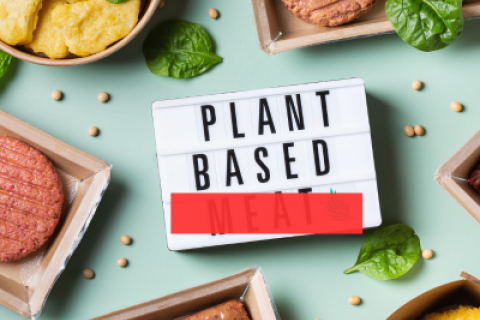
The European Parliament has voted by a large majority to define “meat” as the edible parts of animals, a move that could see familiar terms such as “burger”, “sausage”, “steak” and “escalope” reserved exclusively for animal-derived products. The proposal forms part of a wider review of EU food labelling and agricultural marketing regulations and would, if implemented, prevent plant-based or cell-cultured alternatives from using words traditionally associated with meat.
The amendment, introduced by French MEP Céline Imart, follows ongoing debate about how plant-based foods should be presented to consumers. Supporters of the measure argue that restricting meat-related terms will protect clarity for consumers and fairness for livestock farmers, ensuring that products labelled as meat are unambiguously animal-based. They say the proposal is not directed against plant-based or vegetarian foods but is instead about ensuring transparent labelling and consistent use of established food terms across the European market.
Critics, however, question whether the restriction is necessary, suggesting that consumers are already able to distinguish between plant-based and meat products. Representatives of the plant-based sector argue that banning familiar descriptors could confuse rather than inform shoppers, since terms such as “veggie burger” or “vegan sausage” have become widely understood. Industry associations have also warned that the change could hinder growth in the rapidly expanding plant-based category, adding compliance and rebranding costs at a time when manufacturers and retailers are investing heavily in sustainability and innovation.
The vote marks an important step in the legislative process, but it is not yet the final word. The proposal will now return to a parliamentary committee for clarification before being examined by the European Commission and the Council. Further negotiation with Member States will follow before any law is formally adopted. For now, existing labelling practices remain permitted.
If approved, the regulation would harmonise labelling standards across the EU. While such harmonisation is often welcomed by manufacturers as it can reduce regulatory variation between countries, in this instance it could also mean less flexibility in marketing language and brand communication. Some commentators have noted that the EU approach contrasts with markets such as the UK, where plant-based products have continued to use meat-related terms without major regulatory challenge.
For retailers and manufacturers, the issue is more than semantic. The outcome could affect packaging design, marketing strategy, product positioning, and even cross-border trade. With the plant-based category continuing to expand and consumer interest in sustainable diets still strong, many companies will be watching closely to see how the final legislation takes shape.
